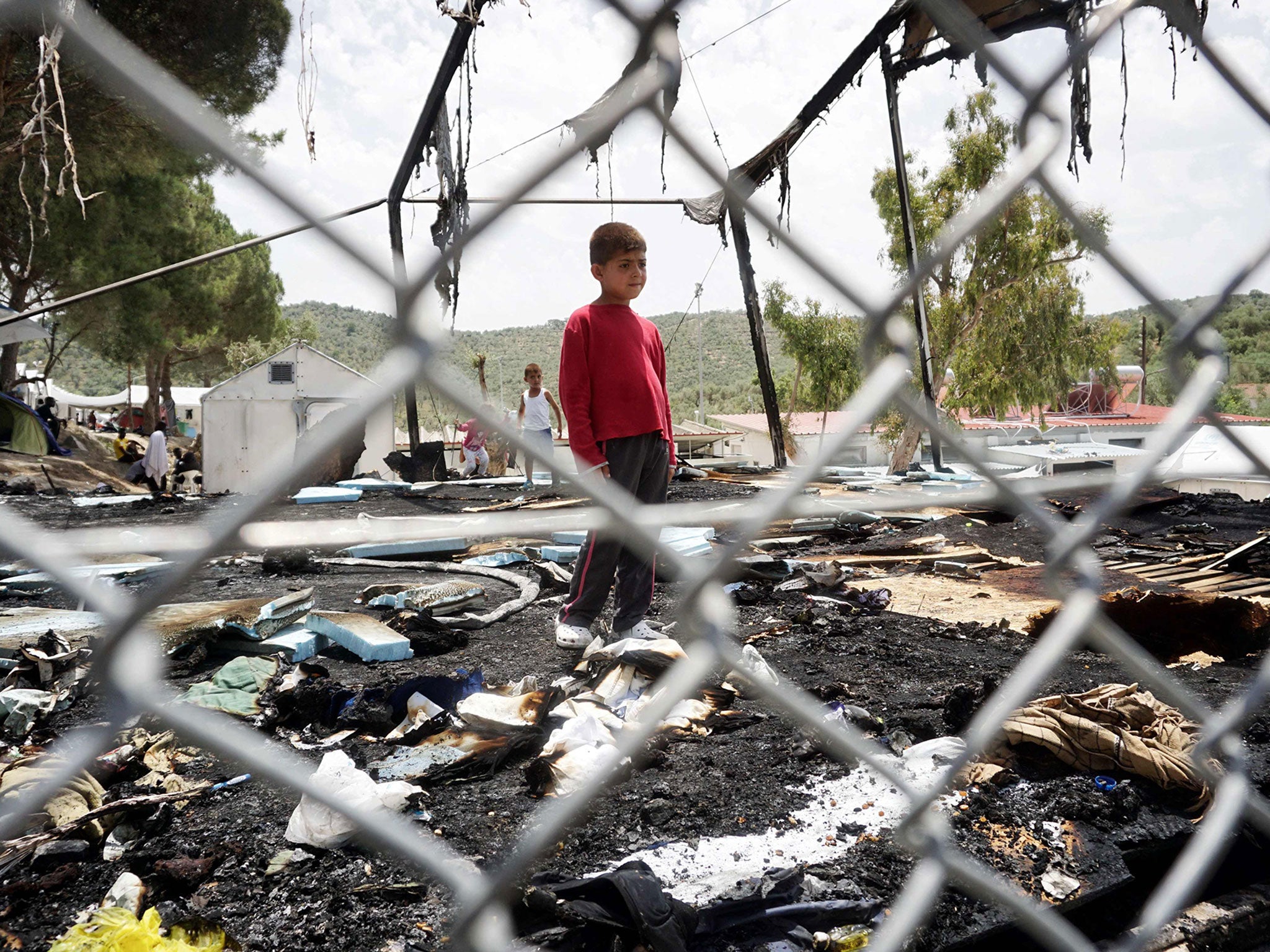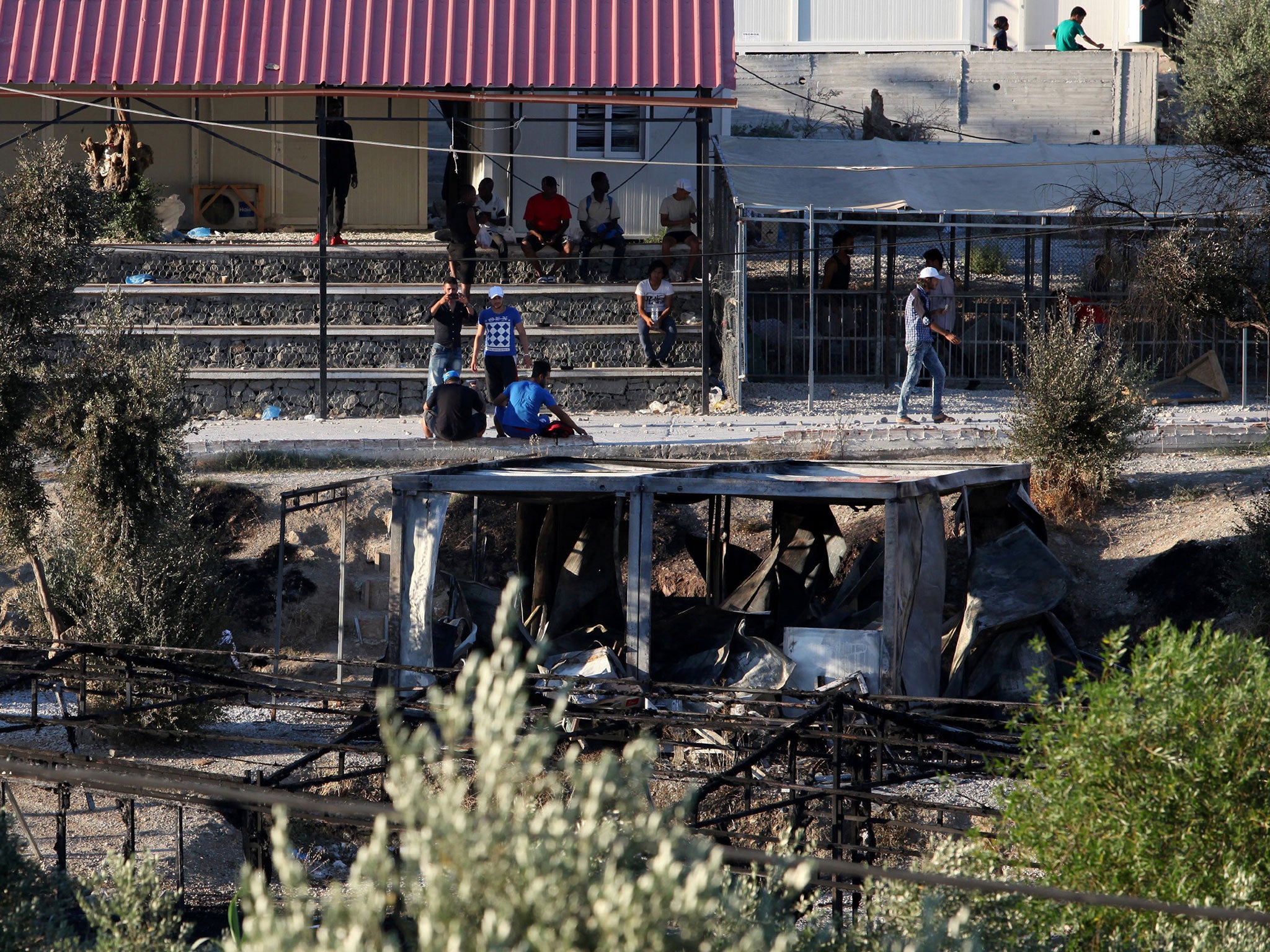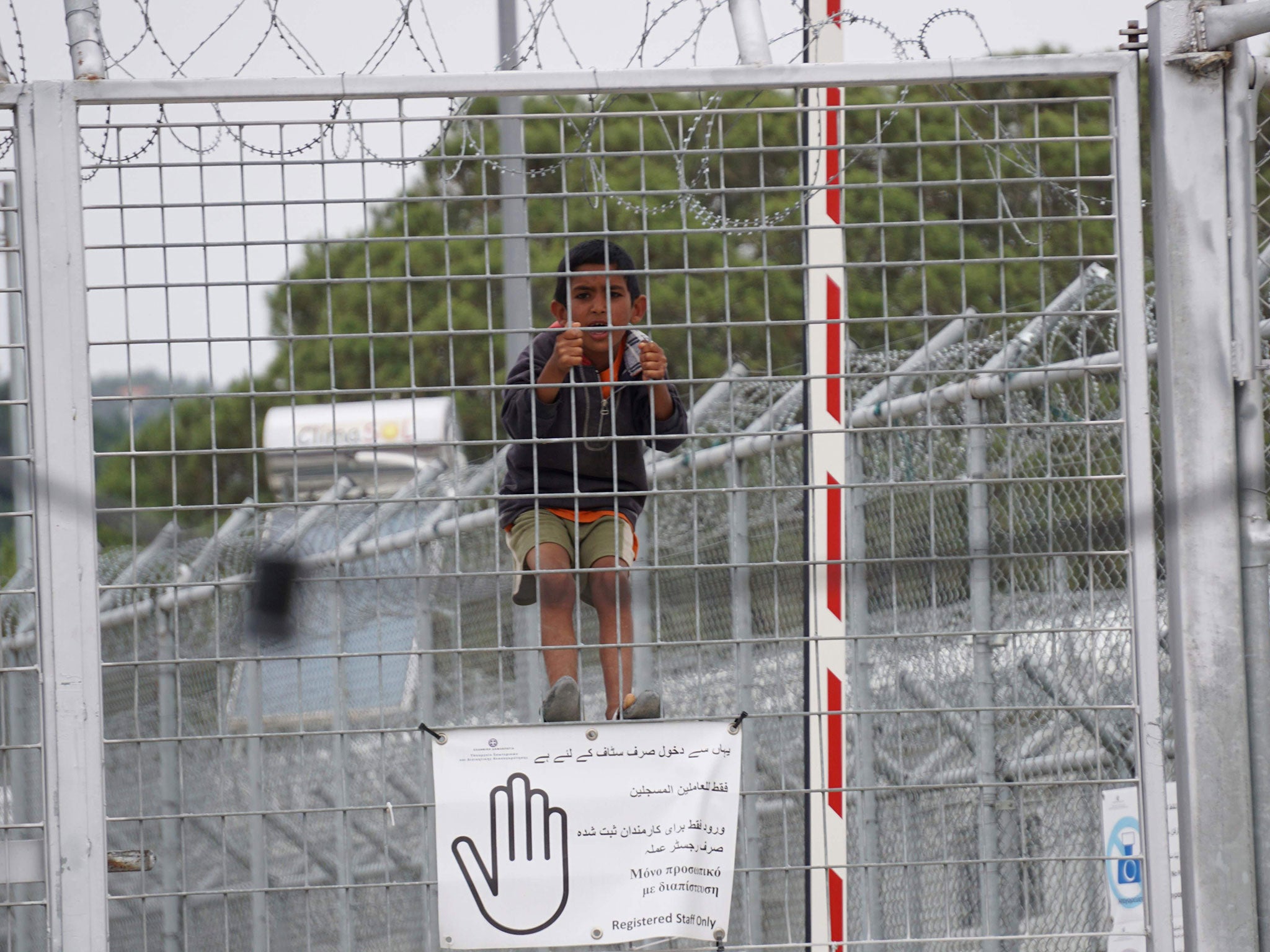EU-Turkey deal 'driving suicide and self-harm' among refugees trapped in Greek camps
'My hope is dead since they brought me here,' says Kurdish mother from Syria

A deal struck by the European Union to slow refugee boat crossings to Greece is driving rising rates of suicide and self-harm in squalid camps, Human Rights Watch (HRW) has warned.
Asylum seekers detained on islands in the Aegean Sea have described people setting themselves on fire, hanging themselves or cutting their wrists, with a third of those on Chios witnessing a suicide.
New research by HRW found children were among those being driven to desperation in conditions increasing the trauma already suffered in the countries they have fled.
“The mental impact of years of conflict, exacerbated by harsh conditions on the Greek islands and the uncertainty of inhumane policies, may not be as visible as physical wounds, but is no less life-threatening,” said Emina Ćerimović, a disability rights researcher for the group.
“The EU and Greece should take immediate action to address this silent crisis and prevent further harm.”
Dozens of asylum seekers, including children, reported rising anxiety, depression, post-traumatic stress disorder (PTSD) and other mental illnesses as they wait months on end in “horrific conditions” to see whether they will be taken to the Greek mainland or deported to Turkey.
A 26-year-old Syrian man, who has been detained on Lesbos for more than three months pending deportation, said he has attempted to kill himself.

Bilal said he was held in a police station for two months, attempting suicide in a cell, before being taken to the notorious Moria camp.
“All this time [at the police station] I had seen no doctor,” he said. “Then I hurt myself in the police station, and then they brought me here.”
The camp, now used as a detention centre for asylum seekers to be transferred to Turkey, has seen deadly fires break out and had to be evacuated after tents froze in the winter.
Migrants being held there told HRW how they were being tormented by the wait to hear their fate, with anxiety compounded by delayed and changed meetings with authorities and a lack of information and interpreters.
Ahmad, a 20-year-old Syrian, was moved to Lesbos from Chios in May and does not know whether he will be sent back or onwards to Turkey.
“I’m in a nervous situation,” he said. “Yesterday, an Algerian guy hurt himself [by cutting] … my feelings are dead.”
Families are among those detained in Moria, including a Kurdish woman from Syria with four children.
“My hope is dead since they brought me here,” Rabiha Hadji told HRW. “We saw all the terrible miseries in Syria but me and my children haven’t seen a jail [until coming to Greece].”
Médecins Sans Frontières (MSF), which provides medical care on Lesbos and the island of Samos, has reported a high prevalence of depression, anxiety and psychosis, and a significant increase in suicide attempts and self-harm this year.
A representative said poor conditions in camps were a particular risk to former prisoners and torture victims, adding: “For people who have experienced extreme violence in detention back in their countries of origin, a place surrounded by barbed wire, the presence of police, and violent clashes clearly cannot be a proper place for them.”
Amir, a 26-year-old Iranian asylum seeker who has been detained on Lesbos since April, said conditions in Moria constantly reminded him of prison in Iran.
“I see the fences and I remember my past,” he said.
“During the first week I was here, I couldn’t sleep all week … I had nightmares of the torture I’ve been through in the military prison.”
Almost 13,000 asylum seekers are currently being held on Greek islands, where 9,500 more have arrived so far this year despite the threat of deportation.
In December, the EU and Greek authorities ended exemptions for vulnerable groups including unaccompanied children, pregnant women, disabled people and torture victims that previously protected them from detention in island camps, despite an appeal from 13 major NGOs.
The EU is now pressuring Greece to speed up asylum decisions and deportations to Turkey, where 1,200 people had been returned between the EU-Turkey deal coming into force in March 2016 and June.
HRW warned that while lengthy procedures were worsening refugees’ distress, “length of asylum procedures should not be reduced at the expense of the quality of the process”.
It has documented cases with a lack of capable interpreters during vital asylum interviews, “serious gaps” in access to information and legal help and authorities prioritising migrants according to nationality.
The practice most commonly sees Syrians fast-tracked over Afghans, Iraqis, Bangladeshis and countries with low application success rates, fuelling tensions within camps that sometimes spill over into violence.
“Greek authorities, with EU support, should ensure asylum seekers have meaningful access to a fair and efficient asylum procedure based on individual claims, not nationality,” a spokesperson for HRW said, urging Greece to end the policy of containment on its islands and transfer asylum seekers to the mainland, where children can be enrolled in school and adults can work.

“The EU and the Greek government should work to restore the dignity and humanity of people seeking protection, not foster conditions that cause psychological harm,” Ms Ćerimović said.
The report is the latest damning verdict of the EU-Turkey deal, which has seen the main refugee route to Europe switch from the comparatively shorter and safer Aegean Sea to the treacherous passage between Libya and Italy.
The agreement committed Turkey to accept the return of most asylum seekers who travelled through its territory to Greek islands, in exchange for billions of euros in aid, visa liberalisation for Turkish citizens, and revived negotiations for Turkish accession to the EU.
Talks have since broken down over a series of rows over European nations banning Turkish referendum rallies, support for Kurdish groups in Syria and concerns over the crackdown following an attempted coup against Recep Tayyip Erdogan.
Research by Save the Children previously found the deal had dramatically reduced the number of refugees journeying over the Aegean Sea to Greece but had given people smugglers “a firmer grip on a hugely profitable business”.
A study by Harvard University found girls as young as four had been raped in an Athens refugee camp, while asylum seekers elsewhere in the country were selling sex to raise money to be smuggled out.
But Europol hailed “success” against people smuggling after setting up the European Migrant Smuggling Centre, identifying 17,500 suspected smugglers in 2016, intercepting messages, seizing documents and destroying boats.
More than 100,000 migrants have arrived in Europe so far this year by sea, mainly from sub-Saharan Africa, Bangladesh and Syria, with 2,300 dying in the attempt.